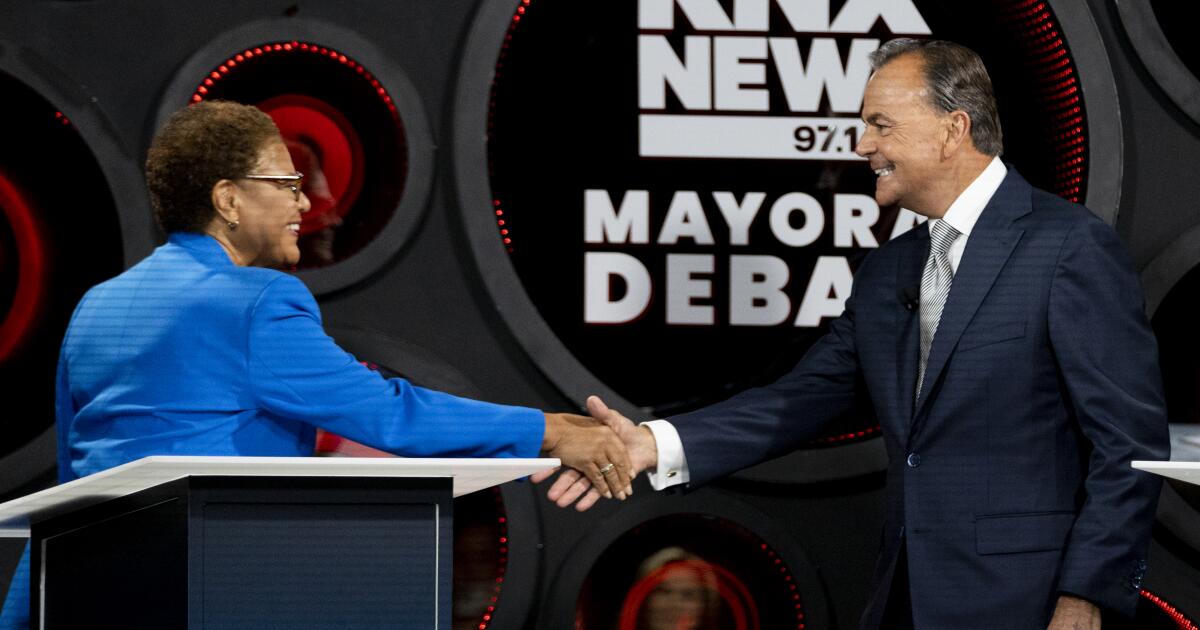Billionaire developer Rick Caruso will not run for L.A. mayor or California governor
Billionaire developer Rick Caruso will not run for Los Angeles mayor or California governor, after months of speculation that he would seek one of the two posts.
Caruso, who had been teasing a possible run for months, made his decision Friday, saying it came after “many heartfelt conversations” with his family.
“Though my name will not be on a ballot, my work continues,” Caruso said on X. “Public service does not require a title. It is, and always will be, my calling.”
Caruso’s plans were the talk of political circles for many months. Recently, he seemed to confirm that he would seek one of the two positions.
When asked by a reporter on Jan. 7 if it was possible he would not run for any position, Caruso responded: “That option is pretty much off the table now.”
Caruso said he will focus on his nonprofit, Steadfast LA, which brings industry leaders together to help with the Palisades fire recovery.
The 66-year-old developer behind popular L.A. malls like the Grove and the Americana at Brand spent $100 million of his own fortune against Karen Bass in 2022, outspending her 11 to 1 in his failed bid. But Bass beat him by nearly 10 percentage points.
Caruso served as president of the L.A. Police Commission in the 2000s and helped the city hire William Bratton as police chief. He was appointed to the Department of Water and Power board in 1984, at age 26 — the youngest commissioner in city history at the time.
Caruso has steadily critiqued the mayor online and in public appearances since 2022, seemingly honing and refining his argument for voters to reject the incumbent, whom he has described as incompetent.
“Her record is so bad,” Caruso said at a town hall he hosted at the Americana on Nov. 3.
Caruso’s decision not to run for mayor solidifies the 2026 field against Bass. Former Los Angeles Unified School District Superintendent Austin Beutner is running a moderate campaign, with arguments about Bass’ response to the Palisades fire and quality of life concerns that are similar to Caruso’s. The developer’s entry could have thrown a wrench into Beutner’s campaign.
Bass also faces a challenge from her left with Rae Huang, a community organizer and reverend, announcing a run for mayor in November.
Most recently, the entry of former reality star and Palisades fire victim Spencer Pratt has added new intrigue to the race.
Bass’ campaign declined to comment on Caruso’s decision.
As for governor, some voters in deep blue pockets of the state may have rejected Caruso, a former Republican who registered as a Democrat in 2022 and has faced questions over his past party registration.
Still, the developer, who has made public safety and quality of life issues his main talking points, might have attracted California voters unhappy with the current crop of gubernatorial candidates.
No single candidate has dominated the field, while some potential contenders, including Sen. Alex Padilla and Atty. Gen. Rob Bonta, have announced they’re not running.
As he weighed a bid for governor in the last year, Caruso traveled multiple times to Sacramento and around the state to meet with labor leaders, community groups and politicians.
“My guess is he did polling and he did not see a path forward,” said Sara Sadhwani, a professor of politics at Pomona College.
“Had he jumped into either race and lost, it would have made the prospects of elected office even further away,” she said.
